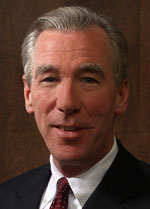“Breaking Bad” is a television series on AMC about a high school chemistry teacher who becomes a drug kingpin. It has quickly become a favorite of mine. Educator Walter White puts his chemistry skills to work in his own meth lab after he learns he has advanced-stage lung cancer and just two years to live. His teaching job, he reasons, will not provide nearly enough for his pregnant wife and his son, who has cerebral palsy.
White enters the drug trade for reasons that are understandable, even sympathetic. But his first poor decision leads to others that rapidly drag him into worse and worse behavior. Several hours into the first season, he murders a pair of rival dealers. As he expands his enterprise, he adopts the thuggish business methods that drug dealers typically employ.
White’s story is a brilliant illustration of virtue ethics. Aristotle argued that we constantly choose what sort of people we become by our actions, virtuous or vicious. We become just by doing just acts, temperate by doing temperate acts, brave by doing brave acts. And we become unjust, intemperate and cowardly by repeatedly doing vicious acts of those kinds. Once we’ve worn a path in either direction, it becomes easier to travel the next time.
A person “breaks bad” by making bad choices and developing bad habits. As he gives in to increasingly bad habits again and again, his vices gradually disorient his moral compass until he has completely lost his way.
White’s story is a bit out of the ordinary because his criminal turn arises out of a real midlife crisis. Most of us form our most deeply ingrained habits — good and bad — at a younger age, and they become more difficult (though never impossible) to change later on.
This is why college, often the first opportunity for young adults to exercise moral freedom, is such a critical time in the formation of character. Those four years can leave students well formed in habits of patience, faith, industry and continence. Or they can become the opposite kind of people — wrathful, impious, lazy and excessively fond of drink.
In 1988, the late James Q. Wilson gave the commencement address at his alma mater, the University of Redlands. He said that students who form good habits can mostly thank their parents; that it’s not the business of colleges to instill virtue. At best, he asserted, moral virtue and higher education are “uneasy allies.”
Wilson was right about the importance of families. But as the president of The Catholic University of America and a longtime academic, I disagree strongly with his latter point. Higher education took a wrong turn when it embraced the teaching of intellectual virtues to the exclusion of moral ones.
The life of the mind is not a game or a series of brainteasers. There are right and wrong answers; good and bad art; true and false ideas; better and worse ways of acting and living. Good teachers inspire their students not just to think for themselves, but to act on those judgments as well.
In past generations, students at Catholic colleges and universities were inspired by Jesuits, Dominicans and Sisters of Mercy. These priests and nuns not only taught them but lived alongside them in residence halls and prayed alongside them in chapels. They had a lasting effect on the kind of people their students became.
Today, fewer of our teachers have taken religious vows. But lay teachers can, and should, see their jobs as the founders of our Catholic colleges and universities did — not just to tell their students about virtue, but to show them how to live it.
***
Garvey is president of The Catholic University of America in Washington.
PREVIOUS: Gosnell, abortion and the sanitizing of facts
NEXT: Team building is essential, in sports and spiritual retreats



Share this story